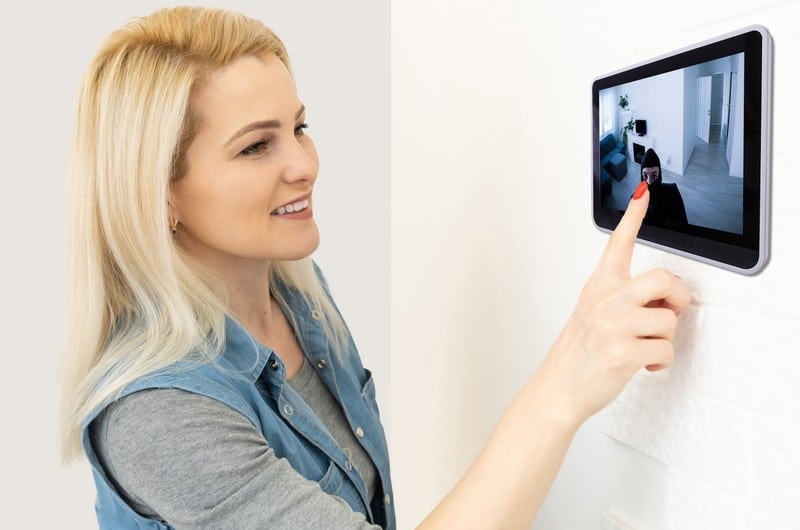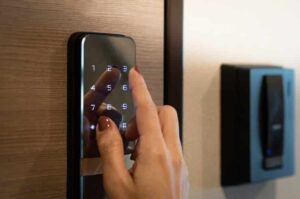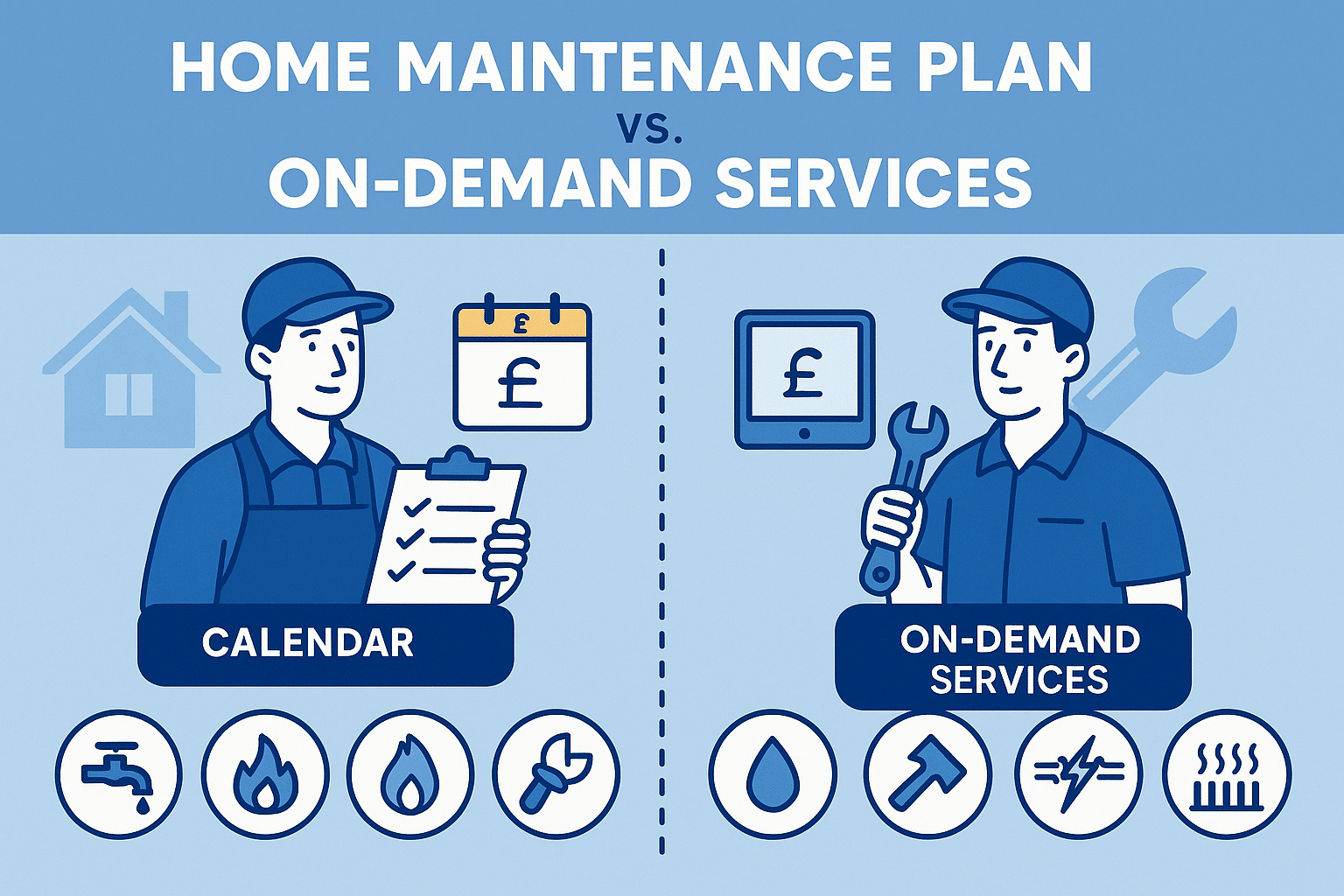 Electronic locks for Rental Properties
Electronic locks for Rental Properties

Electronic locks have revolutionised home and business security. This change has prompted many to ditch their old-fashioned key-and-tumbler systems for the efficiency and peace of mind that electronic locks offer. But with so many different types available, choosing the right one can feel overwhelming. This is especially true if you are managing several properties and security is paramount.
Table of Contents:
- Electronic Locks: A Landlord’s Guide to Enhanced Security
- Types of Electronic Locks
- Choosing the Right Lock: Finding the Perfect Fit
- Conclusion
Electronic Locks: A Landlord’s Guide to Enhanced Security
Electronic locks make life easier for landlords. The benefits extend to tenants, improving security, and potentially increasing your rental income. Let me explain why.
Elevated Security
Traditional locks, while reliable, can be vulnerable. Electronic locks, particularly smart locks, make your property more secure with advanced features. Keypad door locks, for example, eliminate the need for physical keys that can be copied. This makes unauthorised entry considerably tougher.
Simplified Tenant Management
Electronic locks let you provide temporary access codes for guests or service providers, granting access without having to be physically present. Plus, with some electronic door locks, you can remotely monitor access logs. This capability provides valuable information for security and tenant accountability. If there are any disputes, you can review access history for clarity.
Modernising Appeal & Increased Rental Income
Let’s be real – modern renters often seek properties that offer both comfort and advanced features. They see electronic locks as an attractive upgrade from outdated systems, showing that a landlord cares about their safety. Incorporating this technology into your properties can increase rental income. It shows potential renters that you invest in features that improve their living experience.
Types of Electronic Locks
Choosing the right electronic lock involves understanding the distinct types, their pros, and their cons. This informed approach will help you select the perfect electronic lock that meets your rental property’s specific requirements. Let’s take a closer look.
Keypad Locks: Balancing Security and Convenience
As the name implies, keypad locks utilize a keypad for entry. Tenants unlock the door by inputting a preset code. They’re relatively simple to install and use, often favoured for their balance of affordability and ease of management. This balance makes them popular for rental property owners.
| Pros | Cons |
|---|---|
| Easy installation & usage | Vulnerable if simple codes used |
| Keyless convenience | Code sharing possible |
| Cost-effective | Limited features compared to other types |
Smart Locks: The Future of Access Control

Installing a smart lock is a wise choice for the modern landlord. They use Bluetooth or Wi-Fi, unlocking a world of advanced features and unparalleled convenience. Some benefits include:
- Remote access control: Imagine changing access codes remotely or granting temporary entry from miles away, no need for a physical key handover.
- Integration Capabilities: Connect with other smart home systems, allowing tenants to control lighting or thermostats with the same app they use for the lock.
- Increased Security Measures: Employ biometric authentication (such as fingerprint scanning), adding another layer of security to the property.
While more expensive than traditional keypad locks, the benefits often outweigh the initial costs when factoring in increased security, reduced management hassle, and their attractiveness to tech-savvy renters. Smart locks are also weather resistant, offering enhanced door security for external doors.
Card Swipe Locks: Ideal for Multi-Unit Dwellings
Commonly seen in hotels and offices, these electronic locks use keycards to grant access. While highly secure when implemented properly, the installation cost may be prohibitive, especially if retrofitting an existing system. The cost of replacing lost or damaged cards is another factor to bear in mind. However, they offer a high level of access control, making them suitable for larger properties.
Choosing the Right Lock: Finding the Perfect Fit
The process of installing a smart lock, for example, might seem daunting at first, but this guide, along with professional assistance, can greatly simplify it. Deciding which electronic lock suits your needs hinges on your individual preferences, your budget, and the specifics of your property. Consider these factors when making your choice.
- Security: Assess the security needs of your property. Are you in a high-risk area? How important are features like temporary access codes? Answering these questions will guide your decision.
- Ease of Use: Determine if you prefer straightforward access with digital door locks or the advanced functionality of smart locks. Think about the technical proficiency of your tenants and what would be easiest for them.
- Budget Considerations: Outline your budget and the costs associated with each type. Consider not just the upfront costs of the locks but potential maintenance and replacement costs as well. Remember that opting for less expensive options now may lead to security trade-offs or additional costs down the road.
Installation and Maintenance: Smooth Sailing
While straightforward, I strongly suggest consulting a qualified fingerprint smart door lock professional, such as All Service 4U, for installation. Correct installation ensures functionality and security. Be sure to change the default access codes after installation and teach your tenants about basic operation and maintenance.
Ensure they know how to handle simple issues, like replacing batteries, to prevent future lockouts. It’s also important to familiarise yourself with the specific features of the electronic lock you choose, such as key override options or compatibility with a Wi-Fi bridge.
A worthwhile step for those new to the concept of electronic locks is understanding how they differ from traditional ones. Familiarising yourself with features unique to electronic locks, such as remote control capabilities and integration with security cameras, will aid in selecting a system most suitable for your needs.
Conclusion
In the world of rental properties, ensuring security and offering convenience for both landlords and tenants is critical. By using electronic locks, you’re not simply upgrading a door, you’re investing in peace of mind and enhancing the overall security of your property. For any assistance or guidance regarding installation or to explore suitable electronic lock options, feel free to contact us here at All Service 4U.


